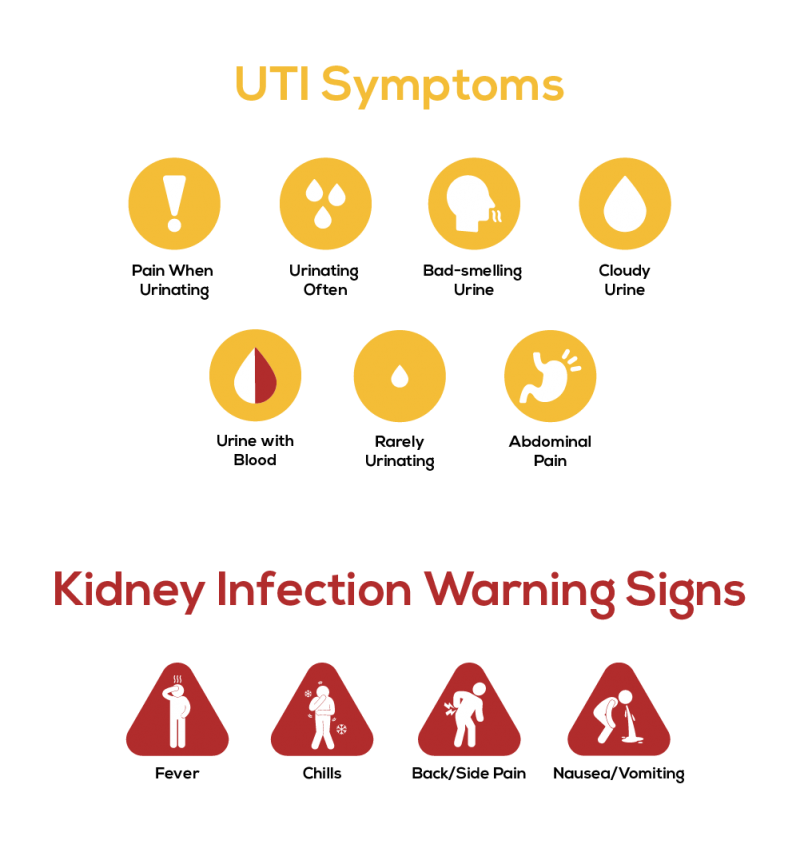Navigating the Signs And Symptoms of Kidney Stones vs UTI: A Detailed Contrast
Navigating the Signs And Symptoms of Kidney Stones vs UTI: A Detailed Contrast
Blog Article
Checking Out the Effects and Causes of Kidney Stones in Comparison to Urinary System Infections: A Thorough Guide
The expedition of kidney rocks and urinary system infections (UTIs) reveals a complex interplay of signs and symptoms and underlying causes that call for cautious assessment. While both conditions can cause hematuria, they provide unique professional attributes and emerge from various etiological elements. Comprehending the subtleties of each condition is essential for efficient diagnosis and administration. What are the essential differences in their symptoms, and how might these educate therapy strategies? The solutions to these questions may offer crucial insights right into the prevention and care of these usual urological issues.
Summary of Kidney Stones
Kidney rocks, likewise understood as renal calculi, form when particular substances in the urine crystallize and accumulation, resulting in the advancement of hard deposits within the kidneys. These rocks can vary in size, varying from a grain of sand to a golf sphere, and can be composed of different materials, one of the most usual being calcium oxalate, uric acid, struvite, and cystine. The formation of kidney rocks is influenced by a number of elements, including nutritional habits, fluid consumption, and hereditary predisposition.
Signs and symptoms of kidney rocks may consist of extreme discomfort in the back or side, blood in the pee, nausea or vomiting, and frequent peeing, specifically as the stone relocates through the urinary system tract. Medical diagnosis commonly involves imaging studies such as ultrasound or CT scans, alongside urinalysis to recognize the stone's composition.
Treatment alternatives differ based on the size and kind of stone, in addition to the severity of signs and symptoms (Kidney Stones vs UTI). Tiny stones might pass normally with increased fluid consumption, while larger stones might need clinical interventions such as lithotripsy or surgical removal. Recognizing the pathophysiology and danger aspects connected with kidney stones is essential for effective prevention and administration
Introduction of Urinary System Tract Infections
Urinary system system infections (UTIs) are typical bacterial infections that affect any component of the urinary system, consisting of the kidneys, ureters, bladder, and urethra. They primarily happen when microorganisms, usually from the intestinal tract, go into the urinary system, leading to swelling and infection.
The occurrence of UTIs is especially greater in females than men, mainly because of anatomical differences, such as a much shorter urethra. Threat elements include sex, certain contraceptive approaches, urinary system retention, and dehydration. The medical diagnosis of UTIs is normally confirmed through urine tests, which may reveal the presence of microorganisms, leukocyte, or red cell.

Signs of Kidney Stones
The discomfort related to kidney stones can materialize in numerous ways, commonly leading individuals to seek medical focus. One of the most typical signs is severe discomfort, usually localized in the reduced back or side, which might emit to the abdominal area or groin. This pain, usually referred to as sharp or cramping, can occur suddenly and might vary in intensity.
Furthermore, people might experience hematuria, or blood in the urine, which can range from microscopic total up to visible discoloration. This symptom may be accompanied by adjustments in urinary system routines, such as enhanced regularity or urgency, along with discomfort throughout peeing. Queasiness and throwing up are likewise prevalent, typically arising from the body's reaction to extreme pain.
In some instances, people might experience high temperature and cools, particularly if an additional infection develops as a result of the blockage caused by the stones. Overall, the mix of serious pain, hematuria, transformed urinary system patterns, and gastrointestinal symptoms can offer substantial insight right into the existence of kidney stones, requiring punctual medical assessment and intervention. Understanding these symptoms is vital for timely diagnosis and efficient administration of the condition.
Symptoms of Urinary System Tract Infections
Infections within the urinary system usually offer a series of unique signs and symptoms that can considerably impact day-to-day live. The most usual signs consist of a consistent urge to pee, typically gone along with by a burning feeling throughout peeing, called dysuria. People may additionally experience increased frequency of urination, generating Check This Out percentages of urine each time.
Other noteworthy signs include reeky or over cast pee, which might suggest the visibility of germs or pus. In some cases, urine may show up pink or red because of the visibility of blood, a problem recognized as hematuria. Furthermore, people may experience pelvic pain or stress, which can better intensify the feeling of necessity.
Systemic signs might likewise manifest, such as high temperature, cools, and exhaustion, particularly if the infection has actually ascended to the kidneys. It is necessary to identify these signs and symptoms early, as untreated urinary system tract infections can cause much more extreme difficulties. Kidney Stones vs UTI. Trigger medical focus is advised when these signs are observed, enabling ideal analysis assessment and treatment to minimize discomfort and protect against further wellness concerns
Reasons For Each Condition
Regularly, kidney stones and urinary system system infections emerge from unique yet in some cases overlapping reasons that can impact people in different ways. Kidney rocks generally form because of metabolic factors, dietary selections, and hereditary proneness. Enhanced levels of calcium, oxalate, or uric acid in the urine can bring about rock formation. Dehydration, not enough liquid intake, and high-sodium diet plans can worsen these conditions, promoting condensation within the urinary system system.

Understanding these distinctive causes is important for prevention and therapy. Kidney Stones vs UTI. While lifestyle modifications might alleviate the risk of kidney rocks, appropriate health and timely treatment of urinary tract infections are necessary for reducing their recurrence and associated complications
Verdict
In recap, kidney rocks and urinary system infections present distinctive symptoms and underlying causes. Kidney stones are defined by serious discomfort and metabolic factors, while urinary system system infections primarily involve microbial infections leading to urinary necessity and pain.
The exploration of kidney stones and urinary system tract infections (UTIs) discloses an intricate interplay of symptoms and underlying reasons that require mindful visit this website exam.Urinary system infections (UTIs) are typical bacterial infections that affect any type of component of the urinary system, including the kidneys, ureters, bladder, and urethra.Often, kidney stones and urinary system infections occur from unique yet in some cases overlapping reasons that can influence individuals differently.In recap, kidney stones and urinary tract infections existing distinctive signs and symptoms and underlying reasons. Kidney rocks are identified Click This Link by extreme discomfort and metabolic variables, while urinary tract infections mostly include microbial infections leading to urinary system necessity and pain.
Report this page